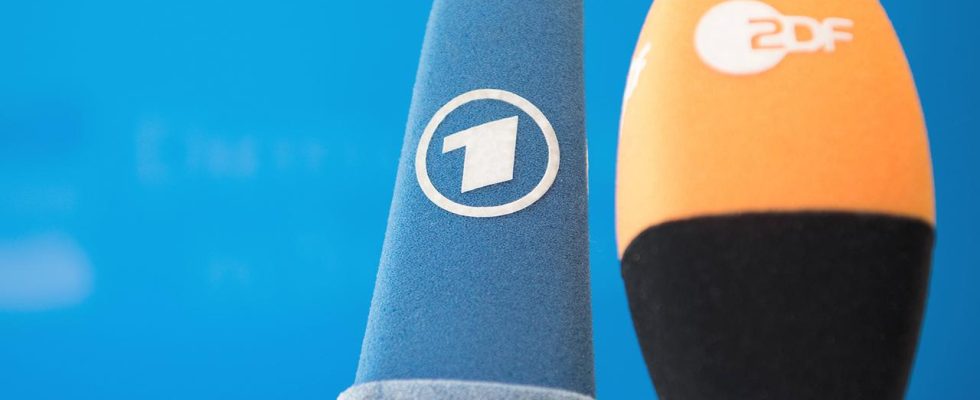The state broadcasting commission has agreed on the next steps to reform public broadcasters: There should be more cooperation and savings. Only then should the new broadcasting fee be determined.
The federal states want to make public broadcasting in Germany fit for the future and draw up a reform treaty by autumn. The broadcasters should become more digital and also leaner, more efficient and therefore more economical, explained the media policy coordinator for the states, the Rhineland-Palatinate State Secretary Heike Raab (SPD), and the Saxon Media Minister Oliver Schenk (CDU) after a two-day retreat.
The collaboration between ARD, ZDF and Deutschlandradio should become mandatory in the future. So far, cooperation has often only been the exception here, said Raab.
Reorganize the broadcasters’ orders and offerings
The planned state treaty should therefore re-regulate the broadcasters’ mission and offerings, stipulate structural reforms and “good governance” provisions and determine the procedure for determining the contribution. She announced that there are also plans to require broadcasters to conduct performance audits of their work. The aim is that ARDZDF and Deutschlandradio reached all sections of the population and were rooted “close to the people in the middle of society”.
The proposed reforms are specifically about much stronger cooperation in reports on major events, a possible merger of foreign studios, the centralization of areas such as procurement or travel expense accounting and savings in the financing of the state media authorities and the radio orchestras, said Schenk.
Expert opinion before possible Contribution increase
The Commission for the Review and Determination of the Financial Requirements of Broadcasting Corporations (KEF) is now tasked with calculating how the proposed efficiency gains and savings potential will have a financial impact. The KEF will then present a final recommendation for the broadcasting fee from 2025 at the end of February. An increase of 58 cents to 18.94 euros per month is being discussed. However, several federal states reject this.
However, there was agreement among the federal states that ARDZDF and Deutschlandradio remain indispensable for the functioning of the democratic system: “Public broadcasting must always be that needle that bursts filter bubbles,” said the Saxon state minister.
Proposals from the Future Council discussed
According to Raab, the focus of the discussions was also on the recommendations of the Future Council for public broadcasting, which calls for a far-reaching restructuring of ARD and ZDF had recommended. “We found a lot of overlap with our own reform considerations,” she said. The idea of a new central building ARD-Institution, which is intended to bundle all supra-regional content, has not met with majority approval in the federal states.
Also the conclusion of the commission chair Julia Jäkel, who ARD as “willing to reform, but not really capable of reform”, met with opposition. The national community considers public broadcasters to be “worthy of reform, but also determined to be capable of reform,” said the politician.

